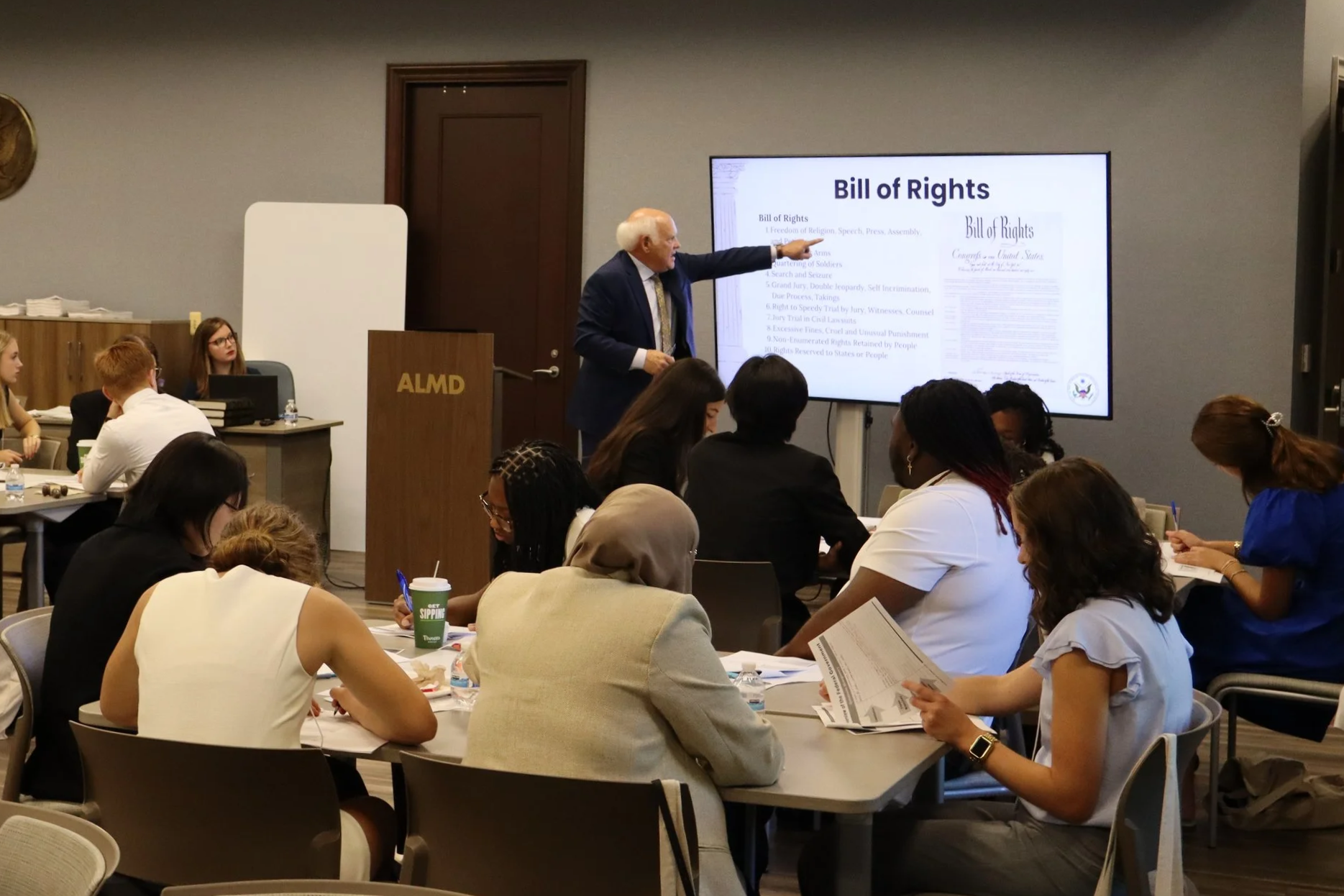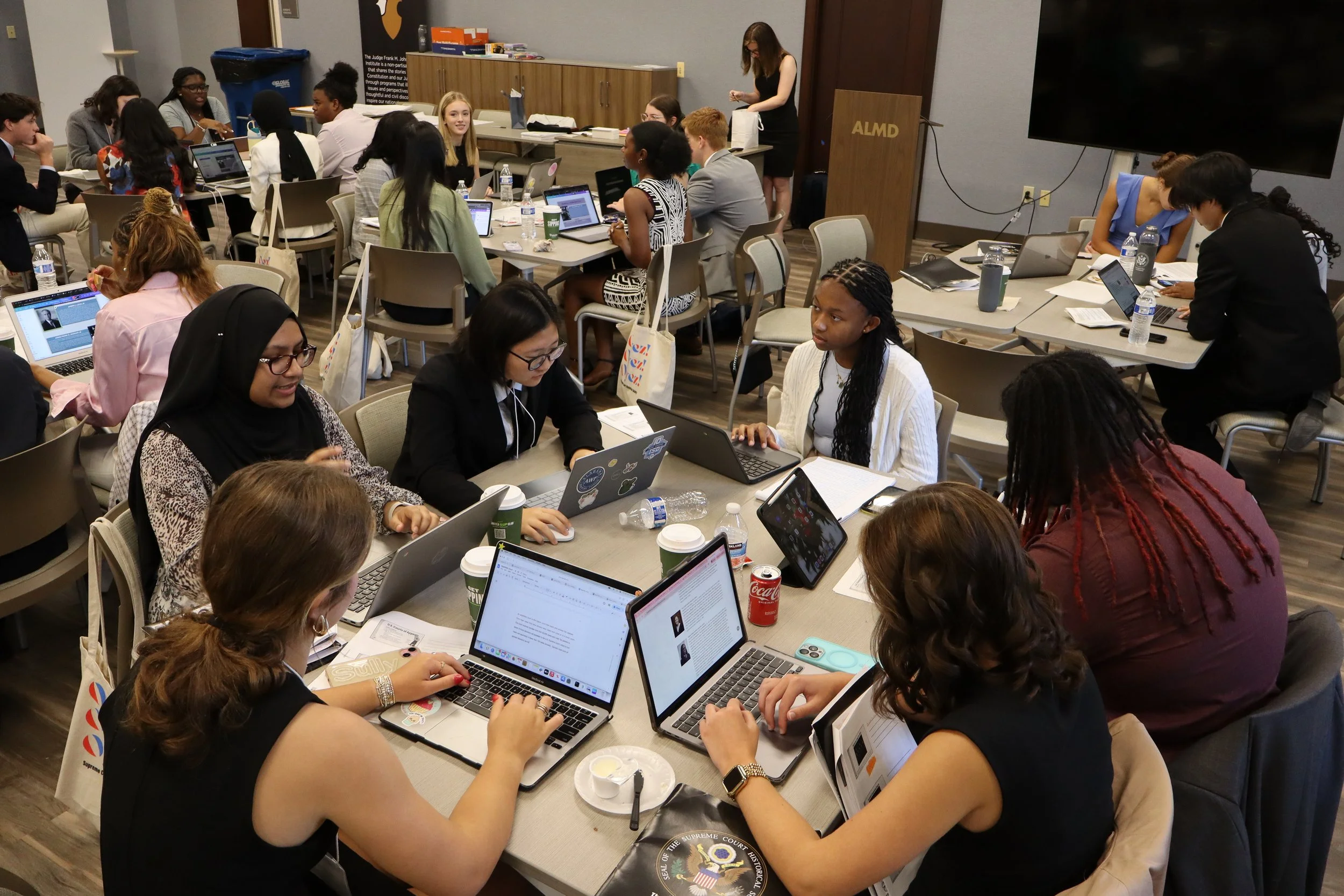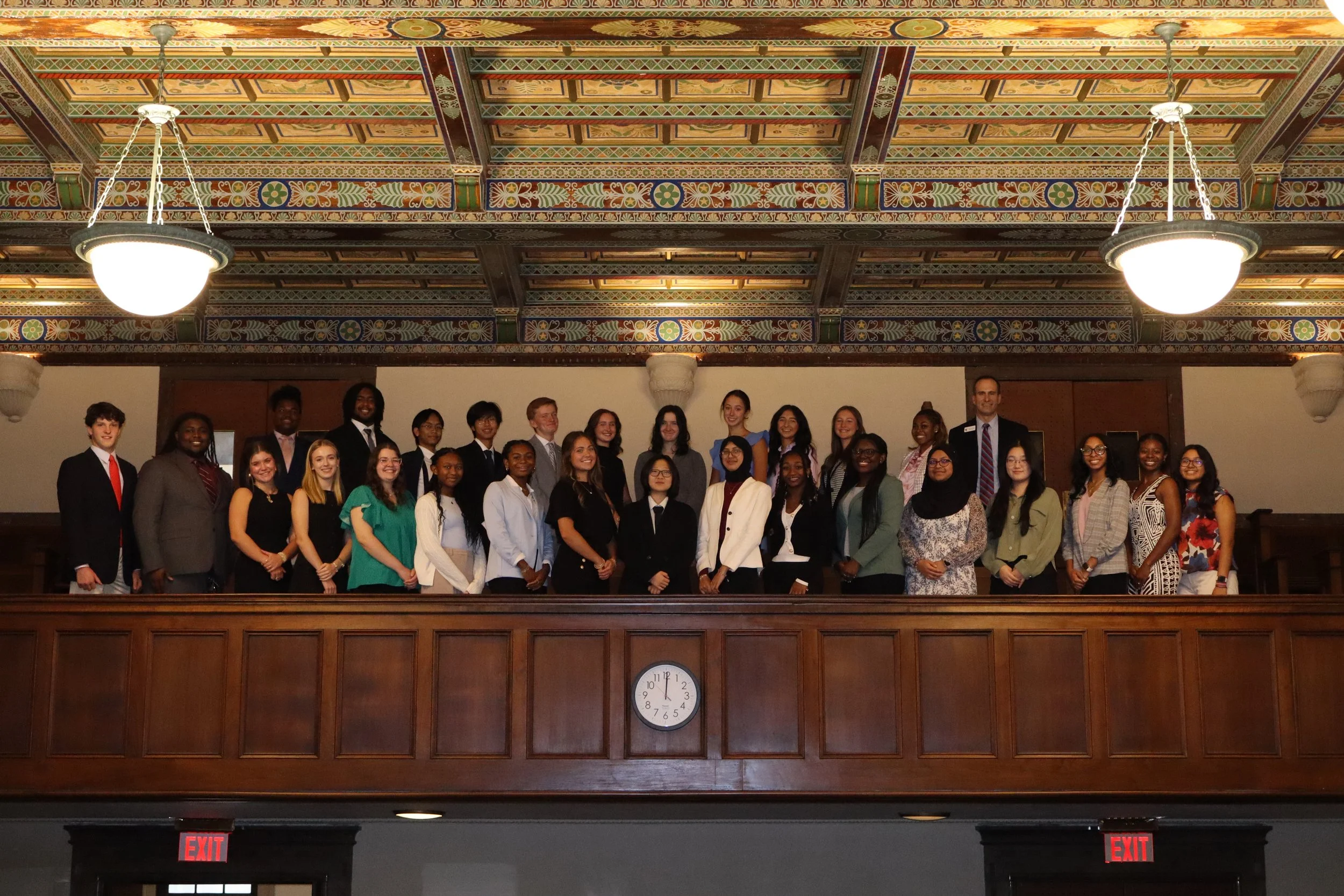Andrell Mcmath, Jr.

All summer, I’ve been serving as a Summer Program Associate with the Judge Frank M. Johnson, Jr. Institute. Recently, I had the chance to help lead one of the most impactful parts of the job so far.
In partnership with the Supreme Court Historical Society, we welcomed 27 high school students from across Alabama’s River Region to dive deep into the U.S. Constitution, the federal courts, and the rights we freely enjoy. Alongside them, I explored the impact of the 5th and 14th Amendments—breaking down how, at one time, even the word “persons” didn’t include everyone. In Reed v. Reed, we studied how the 14th Amendment’s Equal Protection Clause was used to challenge the idea that men could be favored over women under the law, marking a turning point in how the Constitution recognized gender equality.
We studied Article III of the Constitution and traced how judicial power stretches from federal District Courts all the way to the U.S. Supreme Court. We sat in on a sentencing in a federal criminal case, learned directly from judges who interpret the Constitution every day, and had honest conversations about how those interpretations shape our lives.

One of the most impactful experiences was meeting Sharron Cohen (formerly Sharron Frontiero), a former Air Force officer who took a stand against a discriminatory military policy. At the time, male service members automatically received housing allowances if they had dependents, but women like Sharron had to prove they covered at least 50% of their spouse’s support to qualify. She filed suit in the U.S. District Court for the Middle District of Alabama, where the government argued that it was simply more convenient to assume men were the primary earners—a defense based on “administrative convenience.” The district court ruled against her, and the entire case was decided on paper, without any oral arguments.
But when her case—Frontiero v. Richardson—reached the U.S. Supreme Court, it took a historic turn. After oral arguments, the Court ruled in her favor and struck down the policy. It was one of the first times the Court applied intermediate scrutiny to a gender discrimination case, setting a new legal standard that required the government to show an important reason for treating people differently based on sex. Her fight helped redefine equality under the Constitution—and it started right here in Alabama.
Programs like this matter. If we want to make informed decisions—whether serving on juries, or improving our justice system—we have to be educated about the systems we’re part of.
And if the Constitution is still being interpreted, redefined, and challenged—what role will you play in shaping its next chapter?

Andrell served as an intern with The Judge Johnson Institute during the 2024-25 school year while he was a student at Booker T. Washington Magnet High School. He will be attending the University of Alabama this fall.